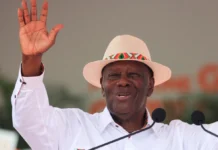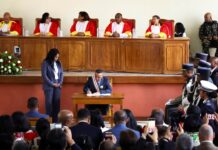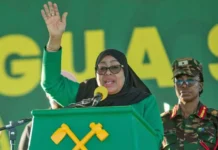At least 31 suspected Maoist rebels have been killed in what Indian authorities are calling the country’s “biggest ever operation” against the decades-old insurgency. The operation, conducted over 21 days along the Chhattisgarh-Telangana border, marks a significant escalation in the government’s crackdown on Naxalite militants.
Home Minister Amit Shah hailed the offensive as a “historic breakthrough,” revealing that the operation culminated in the rebels’ stronghold at Karreguttalu Hill, a remote and rugged area known for heavy insurgent activity. “Our security forces completed this biggest anti-Naxal operation in just 21 days without a single casualty on our side,” Shah said, praising the troops’ bravery.
According to the Ministry of Home Affairs, security forces dismantled 214 rebel hideouts and bunkers and seized hundreds of explosives. The Maoist insurgency, rooted in communist ideology and dating back to the 1960s, has long plagued India’s central and eastern regions. The rebels, often called Naxalites after the village of Naxalbari in West Bengal where the movement began, claim to fight for a classless society.
Prime Minister Narendra Modi also celebrated the operation’s success, declaring it a key milestone in the nation’s ongoing efforts to eradicate Naxalism. “We are fully committed to establishing peace in affected areas and integrating them into the mainstream of development,” he posted on X.
Although the government touts declining violence, from 1,936 incidents in 2010 to 374 in 2024—critics argue that the state’s militarized approach can be heavy-handed. Villagers in Maoist-dominated areas often live in fear of both rebels and security forces. Many report being caught between demands for “taxes” by Maoists and accusations of collaboration from government troops.
Earlier this year in February, 31 rebels and two police officers died in another deadly clash. In 2021, 22 security personnel were killed in a single encounter with insurgents.
Despite recent gains, the insurgency remains one of India’s most complex internal security challenges, rooted in long-standing grievances of poverty, displacement, and marginalization.
Written By Rodney Mbua



















